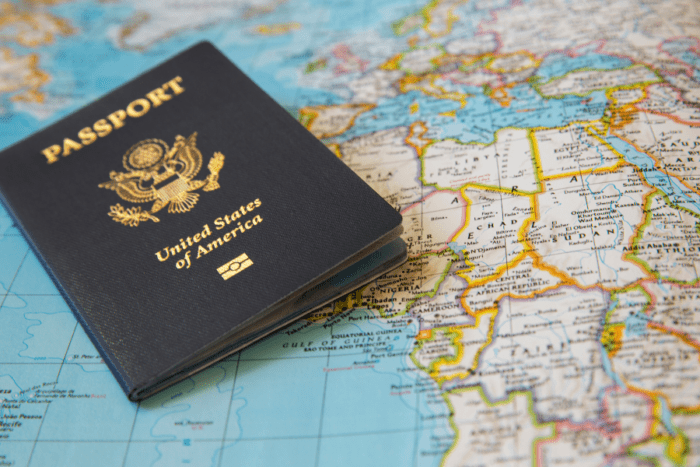What US Expats Should Know About Citizenship-Based Taxation
10 min readIt might seem odd, but the roots of the United States’ Citizenship-Based Taxation (CBT) – a tax which causes expats so many sleepless nights – are mired firmly in the aftermath of the nation’s bloody civil war.
What is CBT? It’s a rare taxation system which allows the US government to tax its citizens regardless of whether they live in the US or generate income from foreign sources.
It doesn’t matter where in the world they live: US citizens are required to file an annual federal tax return on their worldwide income and pay taxes accordingly.
The United States has repeatedly committed itself to CBT over the course of the last century. Knowing about CBT, its rules, implications and penalties is, or at least should be, required reading for US expats.
So where did it come from?
Back in the 1860s, as the US struggled with the destruction of its civil war, much resentment was directed at Americans living abroad. These expats were accused of failing to fulfil their civic duties during their country’s darkest hour and an impatient Congress set out to ensure they contributed to the national cause.
Congress decided these citizens could compensate for their truncated civic participation by paying higher tax rates on their US-sourced income. The law underwent several reforms until arriving at the present situation in 1913.
The US isn’t alone in terms of its focus on CBT. A number of other countries do the same: Mexico, Romania, Bulgaria, Vietnam, the Philippines and Myanmar. Or at least they did. All six countries tried the CBT system out before quietly abandoning it.
Though not exactly the same but in a similar vein, nations such as Mexico, Norway, and Finland require tax residents to pay taxes for a period of up to three years after migrating. For example, when a citizen of Finland moves to another country, they are normally regarded as a Finnish tax resident during the year when they move away and during the three following years.
These days, it’s hard to find a country that uses CBT. Eritrea has something similar: the recovery and reconstruction tax (RRT), commonly known as the ‘diaspora tax’.

It’s not exactly the same as CBT. The Eritrean government charges a simple ‘diaspora tax’, a flat 2%, on its citizens who live abroad but the United States taxes its non-resident citizens at the same rate as if they were at home.
One other difference between the two countries’ tax treatment of non-resident citizens is a United Nations Security Council (UNSC) resolution.
It seems the UNSC doesn’t much like how Eritrea collects its ‘diaspora tax’ and passed a 2011 resolution denouncing the ‘extortion, threats of violence, fraud and other illicit means to collect taxes…’ employed by the African nation.
But while the US has escaped the UNSC censure, it hasn’t escaped the sting of its own citizens’ displeasure. Many expats strongly object to what is described as an ‘unfair’ and ‘heavy-handed’ system that is out of sync with the modern world.
Even the US’ own Inland Revenue Service (IRS) admits its CBT system has shortcomings and insists on imposing ‘disproportionately high penalties for non-compliance’.
It’s fair to say the process is more than a little vexing for many US expats.
The Long Arm of the Internal Revenue Service
CBT has been in place for over a century and there’s little sign of it ending soon, having survived a significant challenge in the Supreme Court in 1924. Since then, the process’ onerous form-filling obligations and demanding timelines for submitting the required paperwork have caused expats no end of stress, not least because failure to comply brings severe reprimand.
In fact, CBT has convinced so many US citizens that it’s impossible to escape these obligations that many have turned to renouncing their American citizenship.
Here at Nomad Capitalist, we’re all too familiar with citizenship-based taxation because of its impact on the entrepreneurs and investors we work with as they move overseas. It’s a major issue for many of these high-net-worth people, as blunt and indiscriminate as it is perplexing.
On one hand, the US is the world’s leading economy and superpower; on the other, its tax arrangements for citizens appear draconian compared to countries like the United Kingdom, Australia and Canada.
If you move overseas from one of these countries or just about any other you care to mention, you can pack your bags and live elsewhere relatively painlessly. By following the proper steps and checking all the boxes then, depending on where you go, you could end up paying less tax. There is also the option of moving to a country that does not have personal or corporate taxes and paying zero.
Complying with US Citizenship Obligations
For US citizens, taxes are an obligation that follows you everywhere. You have to file endless forms, such as the Foreign Account Tax Compliance Act (FATCA), Foreign Bank Account Reporting (FBAR), and forms 5471, 5472, and 2555. In short, being a US citizen overseas carries a significant compliance cost.
Even if you’re living or running a business in a high-tax country where you pay your fair share, you’ll still have the burden of complying with US citizenship obligations.
The real issue is why the US has to be the only country that charges citizenship-based tax. The US has clung doggedly to it despite other countries like Mexico and Hungary abolishing the concept over the years. When such a practice presents such serious concerns for US citizens who live abroad, the question remains: why?
According to the authorities, the answer is that every US citizen has a duty to contribute to their country regardless of where they live. In return for paying citizenship-based taxes, the individual has the right to return and participate fully in the economic and social life of the country whenever they choose. Another aspect is the value of consular services provided to US expats abroad.

While we at Nomad Capitalist are not saying the US is wrong, the idea that the country has some unique claim to tax its citizens abroad when no other country does looks pretty unfair.
The excuse that having a US passport is the golden ticket to success and that the US embassy is right behind you no longer rings true.
Living and Working Abroad
One of the most exciting developments of the post-COVID world has been the ability for so many people to live and work remotely. This has led to an explosion of people choosing to move abroad.
For most countries, taxation is based on residency. As the name implies, this means that only residents of the country are subject to the country’s taxation laws.
However, as already touched on, if you are a US citizen or resident living outside the United States, you’re generally required to file and pay estimated taxes, just like individuals residing within the US. Leaving the US doesn’t mean leaving the IRS.
Among the duties expats are expected to carry out are the following:
- income tax returns
- estate tax returns
- gift tax returns
If you have foreign bank accounts, even if they don’t generate any taxable income, you must report them.
Many Americans living abroad qualify for special tax benefits, such as the foreign earned income exclusion (FEIE) and foreign tax credit. Still, it’s only possible to avail of these by filing a US tax return. If you were under 65 at the end of 2023, you must file a tax return if your gross income was at least:
- US$13,850 as a single person
- US$20,800 as the head of a household
- US$27,700 if married and filing jointly
- US$5 if married and filing separately
- US$400 if self-employed
You’ll need to express the amounts you report in US dollars and convert any foreign currency income or expenses in your return. In addition, foreign financial assets, income from a foreign trust, or gifts from a foreign person must also be reported.
IRS Publication 501 includes the tax rules that affect every person who may have to file a federal income tax return. It answers some basic questions, such as who must file, what filing status to use and the amount of standard deductions. There’s a chart that shows your filing status, your age and what your gross income would need to be to require you to file a federal tax return.
You can see that returns are generally required if you earn over US$13,850 as a single filer. However, if you live overseas, you can use FEIE to reduce or eliminate much of your US tax liability.
How Does Foreign Earned Income Exclusion Work?
All overseas US citizens must file Form 1040 (Individual Income Tax Return) to report their worldwide income. Any foreign income, foreign companies or foreign bank accounts you have must be reported. However, the IRS does allow you to earn some income tax-free by claiming the FEIE. For more information, see our Ultimate Guide to the FEIE.
Qualifying US citizens living abroad can exclude the first US$126,500 for the tax year 2024. For taxation purposes, the IRS classifies your income as active or passive:
- Active Income: earned through work activities in a foreign country. It includes wages, bonuses, or self-employment income and can be earnings from a US-based business or client. Even as an employee of a US-based company, if you actively generate income by living and working overseas, you will qualify for FEIE. However, you will still have to pay for social insurance and Medicare.
- Passive Income: includes stocks, forex and crypto trading, capital gains, real estate profits, pension income, rental income, and social security benefits. This is always taxed by the IRS.
That said, there are perfectly legal ways to use foreign corporations and foreign partners to reduce your taxes dramatically within FEIE rules.
What Happens if You Don’t File Your Taxes?
Most penalties, such as those for not filing or paying taxes, are based on you owing some tax. To exclude a certain portion of your income or use a tax credit to offset any taxes you would owe, you have to file the tax return to receive the exclusion or the tax credit. So, if you haven’t filed, you could technically owe tax.
You may be required to file other forms while living overseas that you are not required to while living in the US. These include the FBAR or the FinCEN 114 form, where you report your foreign bank accounts.
If you own a foreign business or trust, those must be reported separately to the IRS. These forms come with penalties for failing to file. Whether you owe tax or not, these are informational returns and these penalties can be significant. We’re talking US$10,000 and upwards.
Making a Tax Return From Overseas
Citizenship based taxation has had a significant impact on the US expat community.
Thousands of Americans have handed in their US passports and reduced their travel privileges because they didn’t want to deal with the requirement of making a tax return from overseas.
Ultimately, those who renounce their US citizenship want to avoid the hassle of filing and reporting taxes. They want to avoid dealing with the Foreign Corrupt Practices Act (FCPA) and Office of Foreign Assets Control (OFAC) and the multitude of different rules and sanctions that can apply. They want to live their lives and do business the same way that just about all other nationalities do.
However, as a US citizen under citizenship-based taxation, you must not only pay tax but also file a tax return. Exemptions and credits can dramatically reduce the bill, but trying to do everything from abroad can be a frustrating battle that endlessly and needlessly complicates your life.
Banks and brokerages may not want your business because you’re too much of a hassle. You may be unable to open certain bank accounts, make certain investments or be on certain crypto exchanges. Those things relate to citizenship-based taxation and the United States’ regulations on its citizens.
While Canada, Australia, Germany and other Western countries have residential taxation, as a US citizen you’ll pay tax on everything you do worldwide. Whether you live overseas or live in the US, you cannot escape federal taxation unless you plan to leave permanently.
The bottom line is, if you’re looking to live the Nomad Capitalist lifestyle, having a second passport is essential for a US citizen. At least then, you have an option, an escape plan and greater control of your taxes. You will undoubtedly have a lot less hassle filling out your tax return.
The First Step Towards Your New Life
Choosing to renounce US citizenship is a tried and tested means of lowering your taxes, which many of our clients have achieved with relative ease.
It takes planning to get a second passport and ensuring you have the ideal mix of location, lifestyle, tax planning and asset protection strategies working in combination to achieve your goals.
You can still substantially lower your taxes without renouncing by choosing to live overseas or moving to Puerto Rico. But whatever you decide to do, it must be structured properly. Your strategy will need to incorporate the best solutions among all available options.
It’s what we call ‘going where you are treated best‘, and it looks different for each of the 1500+ high-net-worth clients we’ve helped.
Rest assured, our global team of over 60 professionals and country-specific advisors leave no stone unturned when it comes to helping you win personal and financial freedom.
So, if you’re a US citizen reviewing your options, take the first step towards your new life and discover the Nomad Capitalist difference here.



